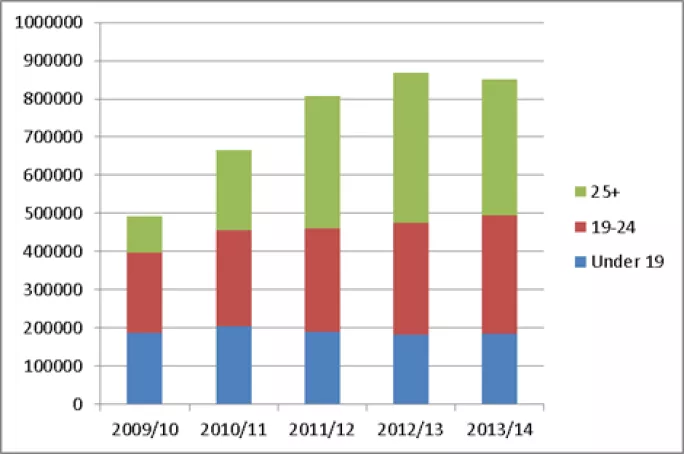‘In the apprenticeships bidding war the focus must be on quality, not quantity’

The Conservatives, Labour and the Lib Dems all agree we need more apprenticeships. Each of the parties’ manifestos promises thousands if not millions more- but with the quantity assured to rise, the quality of these apprenticeships should be the next government’s focus.
The latest figures show that youth unemployment in the UK is still at 14.3 per cent (8.6 percentage points higher than the adult rate). IPPR’s research has shown that youth unemployment is lower in countries where the work-based route to employment is as clear as the academic one - which is why it’s great to see the three main UK parties focusing on the issue of apprenticeships.
However, we need to do more than simply encourage participation; we need to ensure that young people who choose an apprenticeship have access to high-quality training, leading to rewarding careers. High-quality apprenticeships can help to reduce youth unemployment, as well as give businesses the opportunity to develop the workforce skills needed to raise Britain’s flagging productivity.
Policy has, for too long, been focused on the quantity of apprenticeships and not on the quality. The parties’ manifestos do make attempts to address this: the Conservatives have pledged to replace lower-level, classroom based further education courses with high quality apprenticeships; Labour aims to create a gold-standard system of technical education and training; and the Lib Dems promise to expand the number of degree-equivalent Higher Apprenticeships.
The focus on quality is the right one, but policies need to be further-reaching if they are truly to make an impact. Quality is crucial because it can raise the status of work-based routes to employment - in both the eyes of employers as well as young people.
The coalition claims to have created lots of new apprenticeships, but nearly all of these have been taken up by over 25-year-olds. There has been almost no growth in the number of under-19s participating in apprenticeships between 2009-10 and 2013-14, and uptake among 19-24 year-olds has not been much stronger.
Apprenticeship participation by age, 2009-2014

To make a real difference to youth unemployment, the government should aim for future growth in apprenticeships to be confined to the under-25s. To ensure the quality of these apprenticeships they should be at level 3 or higher, and they should last for a minimum of two years. Apprentices should spend 30 per cent of their time doing off-the-job training and spot checks should be carried out to enforce this.
Careers education must be embedded in the curriculum from a young age, and for secondary school pupils it should involve a greater degree of contact with local employers. Evidence from the UKCES Employer Skills Survey suggests that as many as four in ten employers taking on school leavers described the recruits as poorly prepared. Involving employers in careers education at a young age will provide students with up-to-date information on opportunities in the local job market, and help employers to develop the skills needed in their local economy.
Raising the status of apprenticeships by ensuring they are high quality will help to provide a meaningful non-academic route in to work for young people. This will give thousands of young people an opportunity to work, earn and learn; reducing youth unemployment and providing the skills that businesses are crying out for.
Izzy Hatfield is a researcher at the Institute for Public Policy Research (IPPR)
Keep reading for just £1 per month
You've reached your limit of free articles this month. Subscribe for £1 per month for three months and get:
- Unlimited access to all Tes magazine content
- Exclusive subscriber-only stories
- Award-winning email newsletters